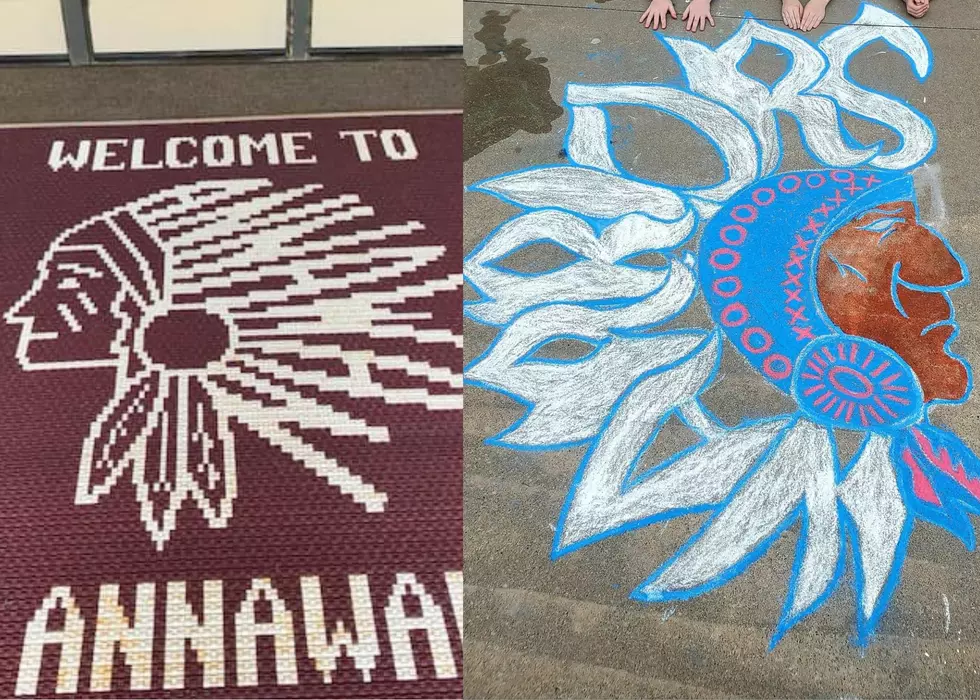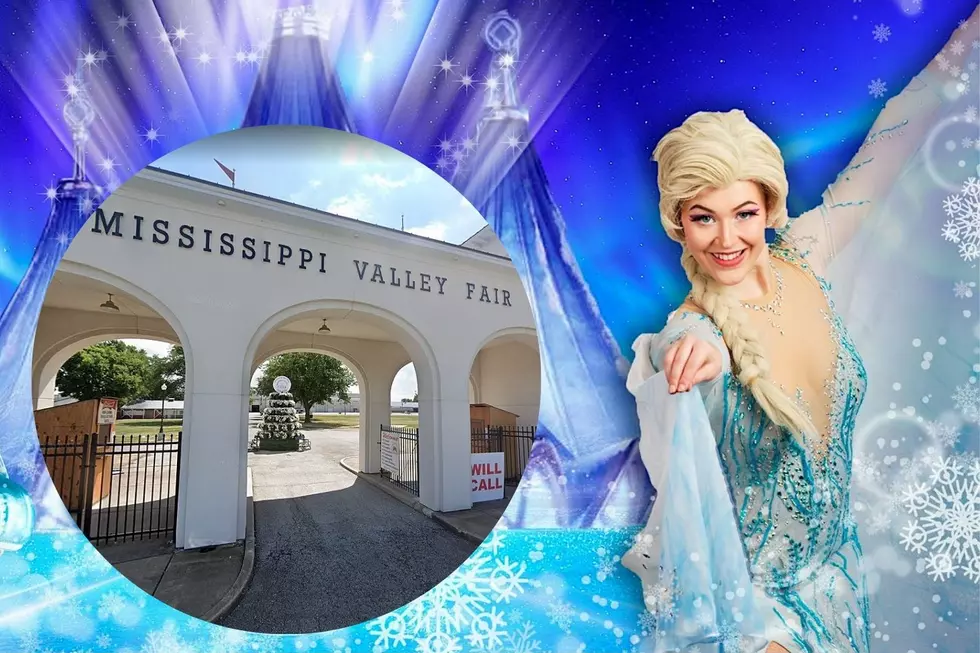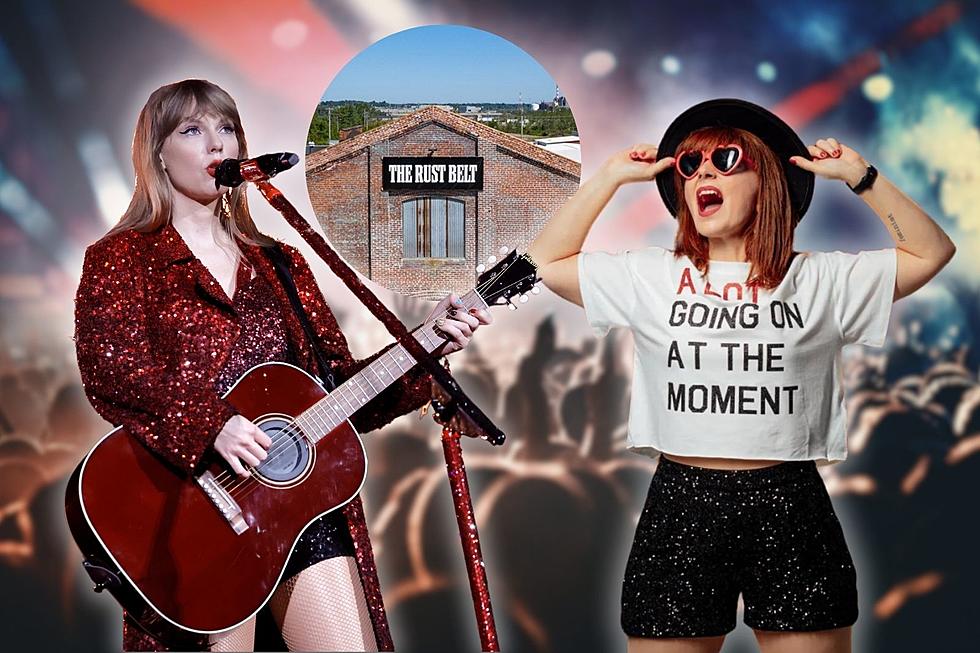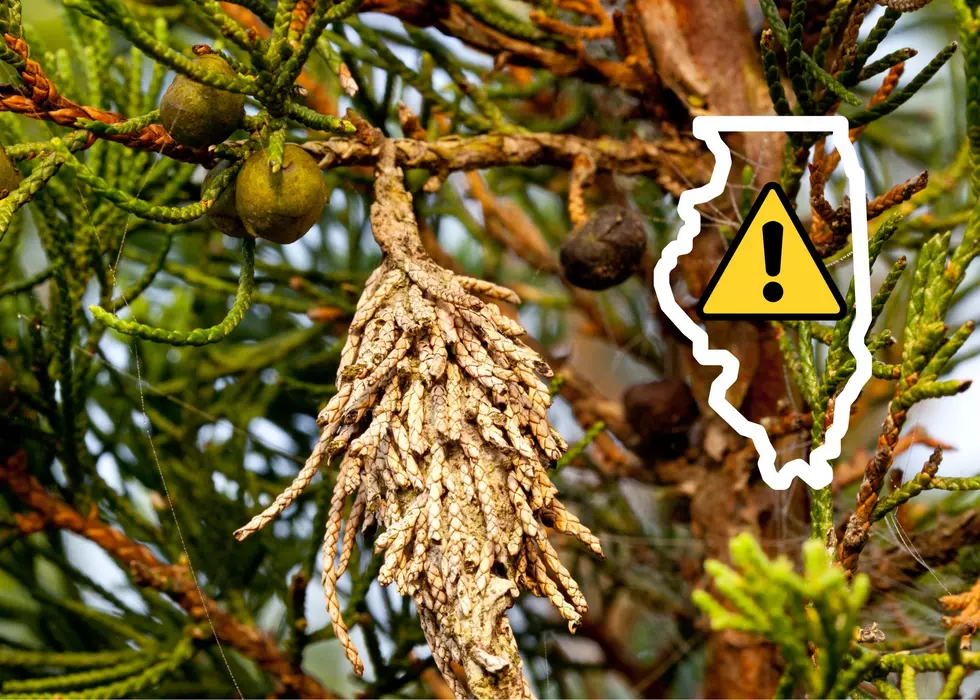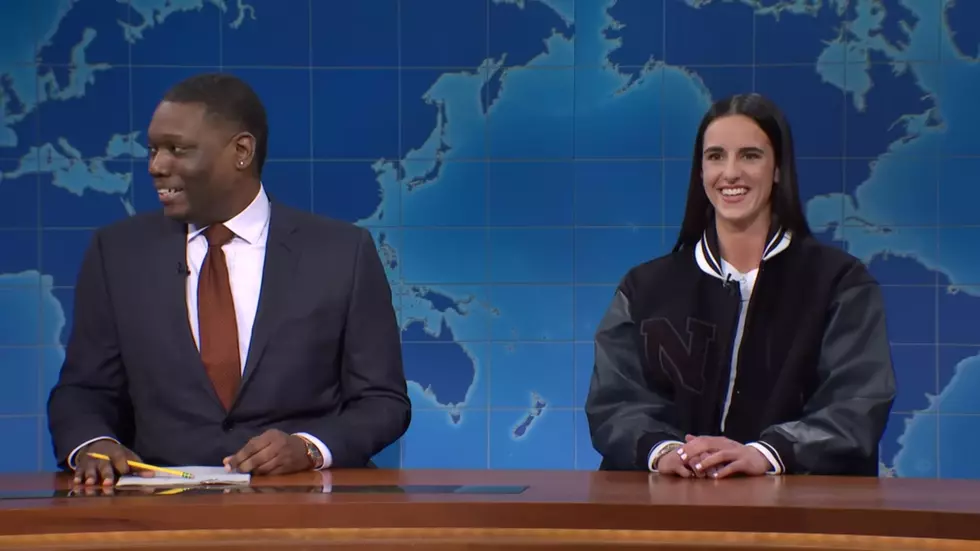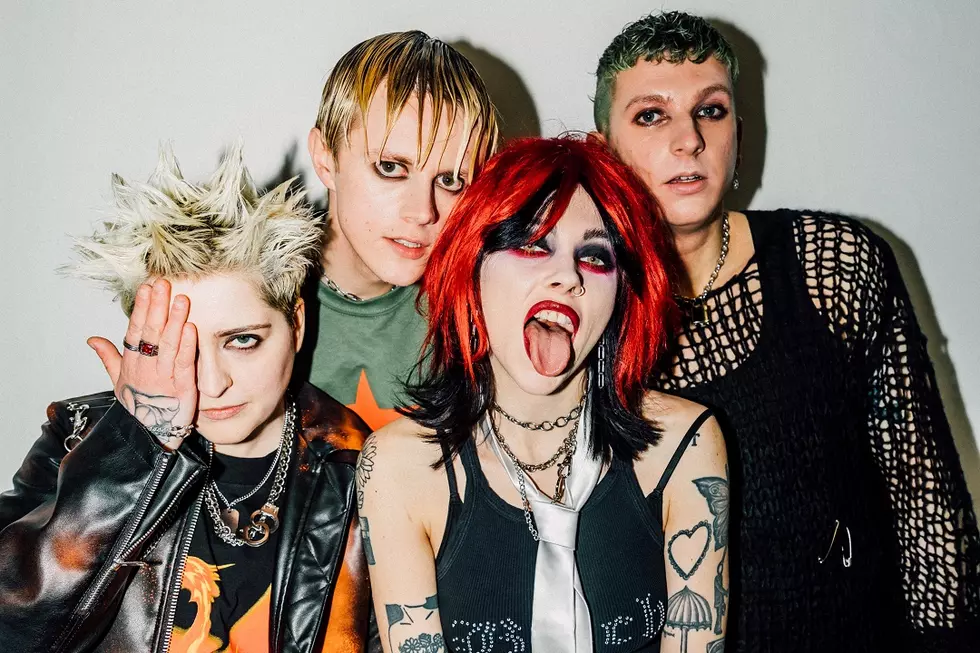
Pale Waves Singer Heather Baron-Gracie Wears Her Angsty Y2K Pop-Rock Influences on Her Sleeve
Comparing women musicians to each other is, for the most part, taboo. It's understandable, considering the misogyny, double standards and marginalization so many women face in the music industry, that many artists would prefer to be viewed solely within the vacuum of their own work. Comparisons between artists (usually women) has been lazy at best, and problematic at worst—see: the media's relentless perpetuation of Britney vs. Xtina, Nicki vs. Cardi, etc. So often women are pitted against each other needlessly, something that has created a harmful false narrative that women can't coexist, let alone flourish, in the same artistic space.
But Heather Baron-Gracie doesn't really mind when you compare her to her personal hero, Avril Lavigne, or any of the other singular women musicians who inspired her growing up, for that matter. The British singer-songwriter wears her influences visibly, like a musical badge of honor. The Pale Waves singer doesn't care what you think: she's proud to celebrate the artists who shaped her—and she does so loudly on the band's sophomore album, Who Am I?
Released Feb. 12, the record is a love letter to the angsty late '90s, early '00s pop-punk, power-pop and emotive pop-rock that soundtracked Baron-Gracie's childhood and teen years, pulling sonic threads from acts like Alanis Morissette, Hole, Michelle Branch, Sixpence None the Richer and the aforementioned Lavigne.
An introspective collection of guitar-driven pop, the album chronicles the singer's queer experience ("She's My Religion"), insecurities and anxieties ("Odd Ones Out"), experiences with sexism ("You Don't Own Me") and journey to emotional liberation. It's deeply personal and unapologetically earnest, so it's no wonder its foundation is built on the nostalgic sounds of Baron-Gracie's rebellious youth.
More than just a musical love letter, though, at its core Who Am I? is an album about subversive love: the kind of love that doesn’t often receive representation in mainstream spaces; the transformative love that rips us to shreds and messily pieces us back together again; the basic human love we sometimes forget to show one another; and the lasting love we hold onto for anyone who has ever made an impact on us. Perhaps most importantly, though, it's about radical self-love, and embracing the beauty and the pain that comes with change, growth and embracing who we are.
Below, Heather Baron-Gracie gets candid about Pale Waves' undeniably nostalgic new pop-rock album, giving fans the queer representation they deserve, the rollicking women rockers who shaped her as an artist and why conforming to society's status quo is out of the question.
How did the band evolve as a unit between My Mind Makes Noises (2018) and your new album?
We’ve all grown up a lot over these past few years. We’ve established who we are a lot more as people. When we wrote and recorded My Mind Makes Noises, you could tell we were so young. We felt new to the music industry. We were actually just looking back at pictures, all of us, a few days ago and just laughing at how much we looked like babies. Literally, we looked so youthful and innocent! We’ve come a really long way with our maturity. I just feel like we’ve really grown up and settled in to ourselves and found who we are a lot more than three years ago. Now, we’re looking forward to the future.
What are some of the life events that shaped the new album?
Right before I wrote the record, I hit a really low point in my mental health and I started to question everything. I started to question if music was what I wanted to do anymore because I just felt so unhappy and empty. I think hitting that low point encouraged me to write this record because I felt like I had to get out of me what I was feeling at that point, which was frustration and sadness.
You open up more about your sexuality on this album, through songs like “She’s My Religion.” What sparked that openness for you?
I think just genuinely falling in love and being in a relationship. I felt like I was ready to be open and talk about it, and I wanted to [open up] because I’m proud of it. I’m grateful that I have this relationship because it has meant so much to the fans. Out of all of the singles and all of the music videos [we’ve released off this album], “She’s My Religion” is one that has really resonated with our fans because they finally have healthy representation for the LGBTQ+ community, rather than just a straight pop star singing about getting drunk and kissing girls or something. Those types of songs are so frustrating.
Would you say Who Am I? reflects you more personally than My Mind Makes Noises?
Yeah, 100 percent. Every single song on this album genuinely means a lot to me. With the first album, I do resonate with a lot of those songs, especially “Drive,” “Karl” and “Noises.” But with some others, I don’t connect the same way that I do with this second record. And that’s just because I became a lot more open as a person and more willing as a songwriter.
On the first album, I hid behind a lot of metaphors. A lot of songs weren’t straight to the point, whereas for this record I was willing to be a lot more vulnerable. That means that, naturally, I connect more with the second record. I hope I can continue to make that movement [forward] with the third piece of content that Pale Waves put out. I want to continue opening up.
“You Don’t Own Me” includes relevant feminist messaging, especially in this moment in pop culture where we’re reexamining the way the media and public has treated certain high profile women, from Britney Spears to Lindsay Lohan.
My girlfriend was actually watching that documentary about Britney Spears recently. I was coming in and out of the room because I was doing various things and I got a glimpse of that. Then I saw the viral video of Lindsay Lohan doing that interview with [David Letterman]. I watched that and I was absolutely disgusted [with how] he kept pushing her, basically making fun of her mental health and treating her like a joke rather than a human being. She handled it so well, but I don’t know how she managed to bite her tongue. It’s people like that who drive others like Britney to these outcomes. They’re driven [to that point] by the media, by the people constantly analyzing and criticizing them. It is absolutely awful and evil. We need to start seeing other people as human beings.
“Tomorrow” is also important on a cultural level, as it speaks to isolation, conformity and otherness. What advice would you give to fans who are struggling to make it through today’s societal pressures?
I would just say, as hard as it is, don’t listen to the awful things that society tells you. You, as an individual, are unique and beautiful and wonderful—and that’s how the world should be. I think society tries to make us all the same. If we dress differently, if we look different, we’re classified as weirdos and freaks. That’s not the behavior that society should have; everyone is different and everyone should accept that and we shouldn’t feel like we have to conform. Don’t conform, no matter what other people tell you. Just stay true to who you are.
Do you get frustrated when some folks rail against the dichotomy between your goth-inspired personal style and the band’s more pop-leaning music?
It's incredibly frustrating and I have to bite my tongue a lot of the time. I don’t really understand why it’s so difficult, but people can’t seem to comprehend that maybe I want to wear dark eyeshadow and lipstick. Why is that not okay for me [to wear] while singing a pop song? You don’t have to dress a certain way to play pop music. Why does it bother people? Why is it even an issue? Like, they must not have a lot going on in their lives to get really angry at how we dress and how we look while performing pop songs. I see people all the time saying we “goth-bait.” [Laughs] We’re not trying to “goth-bait” you! I’ve been dressing like this since I was 14 years old.
I’ve heard it so many times. We were once at a photo shoot outside in London and someone walked by and was like, “Oh you’re in a rock band aren’t you? Do you make heavy music? Do you scream?” I didn’t even look that gothic on the occasion that I’m talking about either. What do you expect me to look like when you listen to “Easy,” which is probably the most pop track on our album? Let people be who they want to be.
Musically, for this album you seem to have channeled a specific group of strong and impactful women in pop-rock: Alanis Morissette, Avril Lavigne, Courtney Love, Liz Phair, Michelle Branch—that late ‘90s, early ‘00s sound that defined a generation of youth. How did that era of music impact you?
That [era of] music has been consistent throughout my life since I was 14 or 15, and I’m 26 now. I listen to those artists nonstop; that music is my go-to. I think those women in particular have definitely made such an impact on music and I don’t think they get enough credit. I remember when I was growing up, I was kind of by myself—I played on my skateboard and I didn't see a lot of girls who were like me. They were wearing skirts and makeup and I didn’t want to do that. Then I saw Avril Lavigne on TV playing “Sk8er Boi” and I instantly felt understood. I finally felt like it was cool to be a tomboy. Those women in particular helped shape me to be who I am today. I look up to them massively.
Avril Lavigne seems to be finally getting the recognition and respect she deserves in pop culture. Why has it taken so long for us to give her her dues?
People are shocked when I say that Avril has been a massive influence on this album and even just me as a person. They almost see [her] as cheesy or gimmicky. Like, you’re insane if you think that! Avril shaped so many people and played a huge part in so many people’s childhoods, especially girls. There’s no denying that her first three albums in particular are iconic pieces of work with amazing, incredible songwriting. And I don’t know why people see her as this “gimmicky” artist. She’s not. I think we do owe her respect. She’s due some ultimate respect.
Was the album cover, and the stance you’re standing in the artwork, a conscious nod to Avril’s Let Go album cover, or did it just happen that way serendipitously?
I do actually stand like that, so that pose was natural. [Laughs] I did take massive influence from Let Go, though. I love that sort of motion and movement. I love that ‘90s, early 2000s color palette in particular. It did influence the album, I’m not going to deny it. If anything, art is just recycled; it’s just about putting your own spin on it. Some artists pretend that they invent everything they do. Like, what!? You don’t take influence from everything around you?
What are the albums that did for you when you were younger what you hope this album will do for fans?
I don’t want to say Avril Lavigne because we spoke about her already. So, I think Jagged Little Pill by Alanis [because] she’s such a strong, bold and powerful woman. She doesn’t hold back with her songwriting; she’s very open about most things. I think she’s genuinely one of the best songwriters out there. I mean, “Ironic”? The concept for that is just genius. It’s incredible and I love everything about Alanis and I would die to see her live. That album in particular played a massive part in my childhood and influenced me a lot as an artist. I hope that our new album does that for our fans, too.
Despite the album's titular question posed—"Who am I?"—you seem to know exactly who you are now. What did you discover about yourself while working on the record?
I found out that I was genuinely moving on to a better place mentally and that a lot of my perspectives had drastically shifted. It was nice to see that change because it felt a lot healthier. It felt amazing, seeing me grow as a person and move forward to a better lifestyle and better outlook on life. I think I’ve found that within this album.
What questions were you left with?
How will I continue to [evolve]? What changes can I continue to make to make myself healthier mentally? How can I continue this journey? How do I keep moving forward? I don’t think as human beings we can ever fully identify with who we are, because we’re evolving every day. We’re constantly, drastically changing. I feel like I really neglected a lot of myself before, and in the past year and a half, I’ve really embraced those parts of myself. I just want to continue to grow.
Barrier-Breaking Women in Music
More From B100

